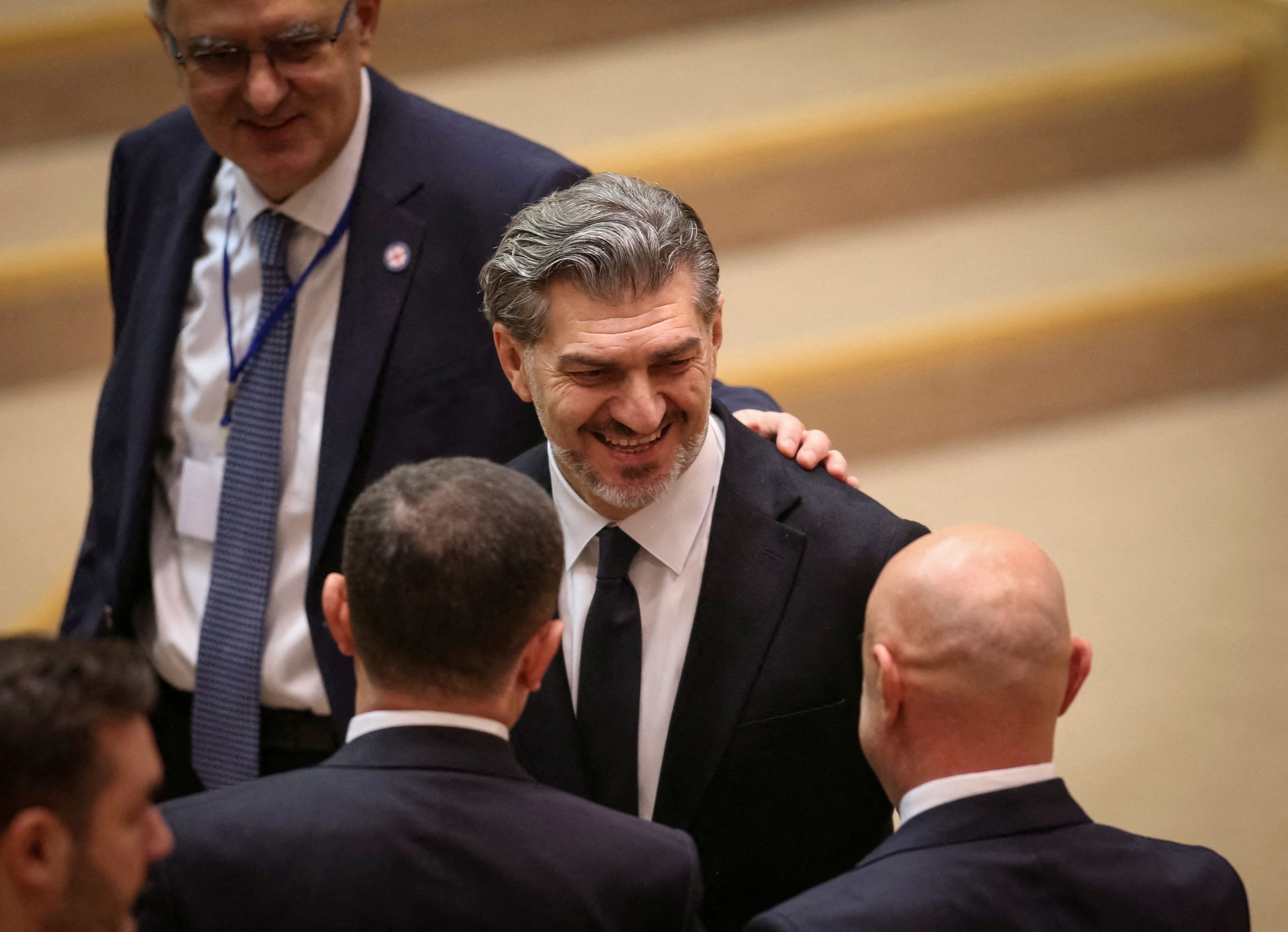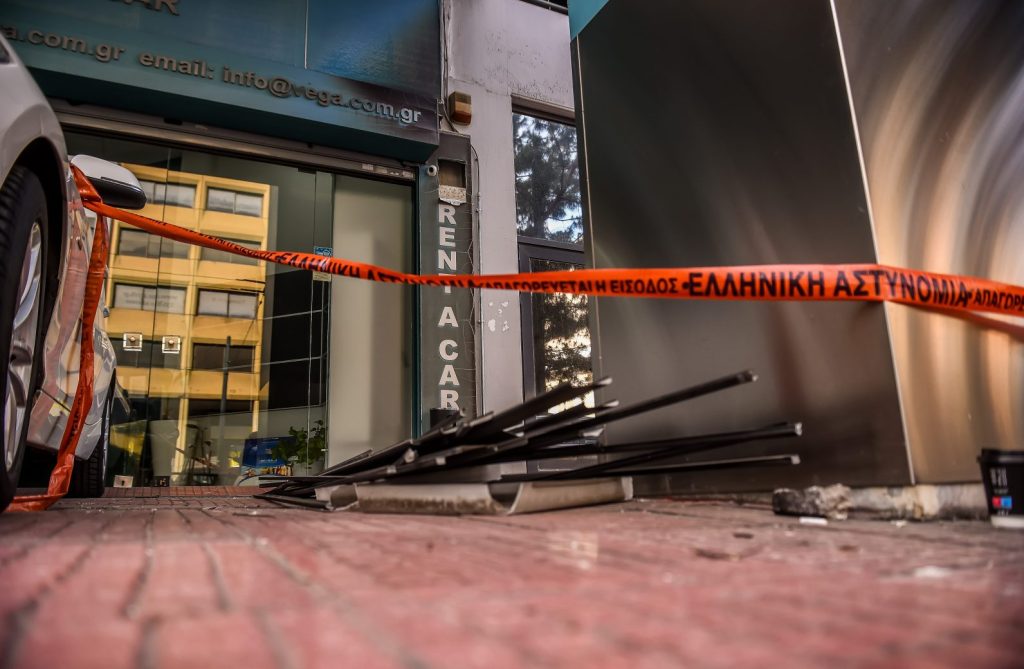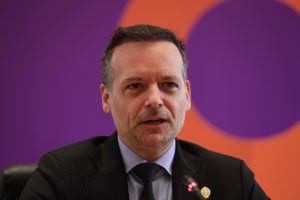Georgian lawmakers elected Mikheil Kavelashvili, a vocal critic of the West, as president on Saturday amid widespread protests over the government’s decision to freeze the country’s European Union accession process.
Kavelashvili’s election, marked by accusations of democratic backsliding and growing ties with Russia, has further inflamed tensions in the politically volatile nation.
According to Reuters, Kavelashvili, a former soccer player and leader of the anti-Western People’s Power faction, was elected with overwhelming support from the Georgian Dream-dominated electoral college. Of 225 votes cast, 224 backed Kavelashvili, with no opposing candidates following an opposition boycott of parliament over alleged election fraud.
Known for conspiratorial rhetoric, Kavelashvili has accused Western intelligence agencies of attempting to provoke a war between Georgia and Russia. His ascension signals a sharp departure from the pro-European stance championed by outgoing President Salome Zourabichvili.
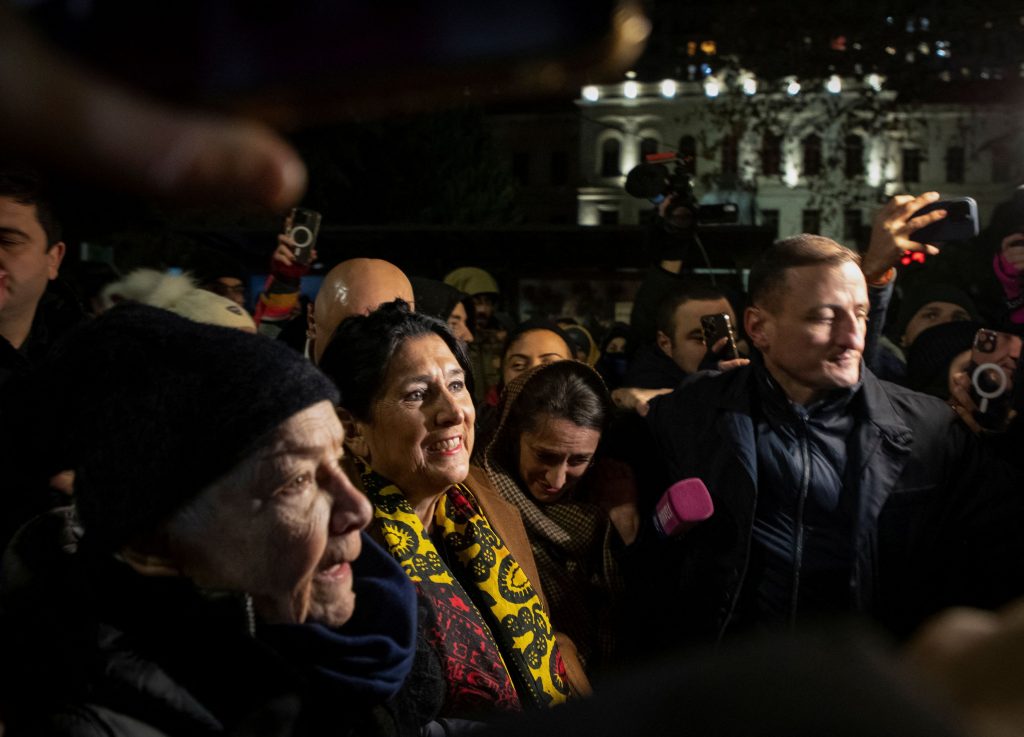
Outgoing Georgia’s President Salome Zourabichvili walks outside the parliament building after the election of Mikheil Kavelashvili, as Georgia’s new president, in Tbilisi, Georgia December 14, 2024. REUTERS/Daro Sulakauri
Zourabichvili, a staunch critic of Georgian Dream’s policies, condemned the election as “a mockery of democracy” and vowed to remain active in the protest movement after her term ends. Opposition parties have also pledged to continue recognizing her as the legitimate president.
The election follows Georgian Dream’s controversial decision to freeze the EU accession process until 2028, a reversal of the country’s longstanding constitutional goal. The move has triggered mass protests, with tens of thousands of Georgians rallying nightly outside parliament to demand the government’s resignation and a return to a pro-EU agenda.
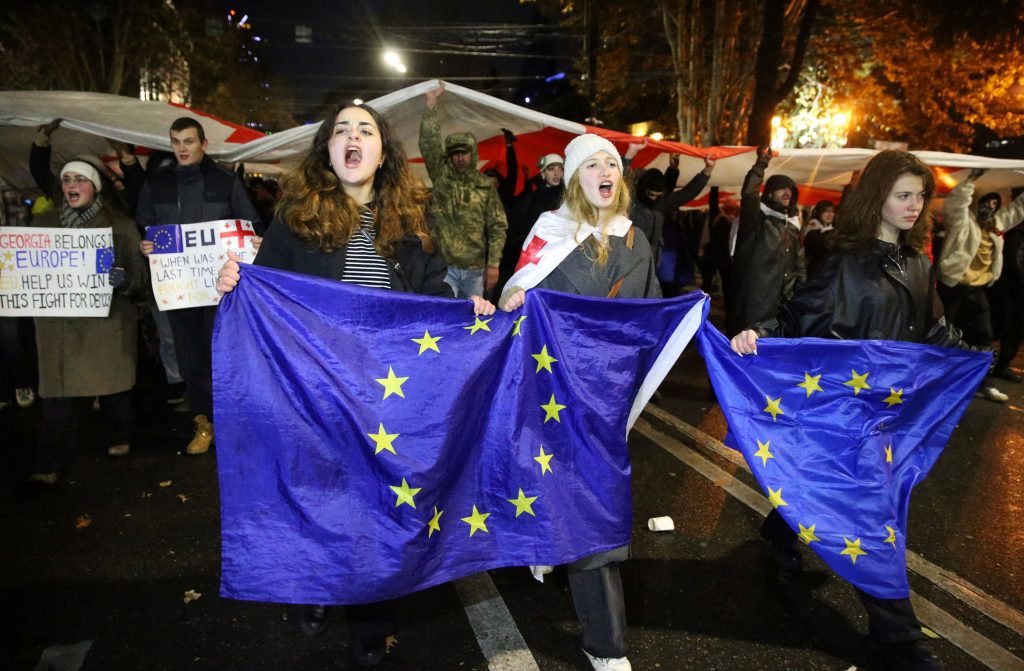
Supporters of Georgia’s opposition parties carry the European Union flags during a rally to protest against the government’s decision to suspend talks on joining the European Union, in Tbilisi, Georgia December 13, 2024. REUTERS/Irakli Gedenidze
Demonstrators, some playing soccer as a jab at Kavelashvili’s athletic career, waved red cards to symbolize their rejection of his presidency.
Western leaders have expressed concern over Georgia’s foreign policy pivot and warned of potential sanctions over the crackdown on protests, which has seen hundreds arrested and left more than 150 police officers injured.
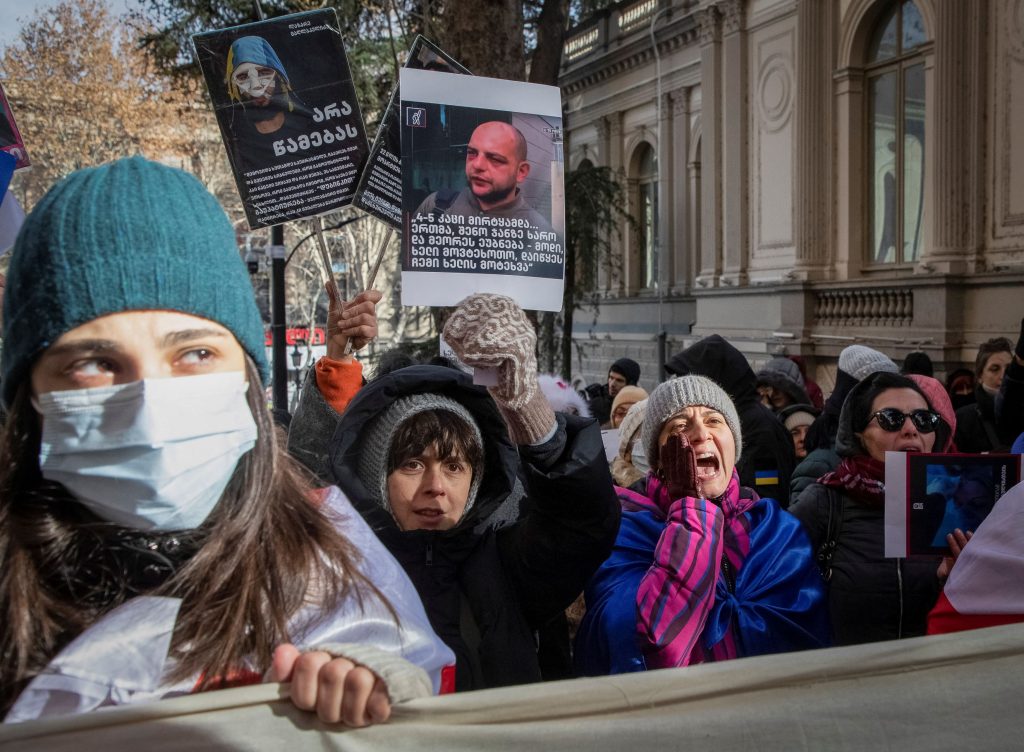
Opposition supporters protest outside the parliament building, as deputies vote to elect a new president, in Tbilisi, Georgia December 14, 2024. REUTERS/Daro Sulakauri
Georgia’s shift away from the EU has alarmed Western allies, who view the recent foreign agents law and other measures as steps toward authoritarianism. The law, co-authored by Kavelashvili, requires organizations receiving over 20% of their funding from abroad to register as foreign agents, a policy critics say mirrors Russian legislation used to stifle dissent.
Relations with the EU and NATO have deteriorated further amid Georgia’s overtures to Moscow. Since the outbreak of the war in Ukraine, Georgian Dream has sought closer ties with Russia, which occupies two Georgian territories and defeated the country in a brief war in 2008.
